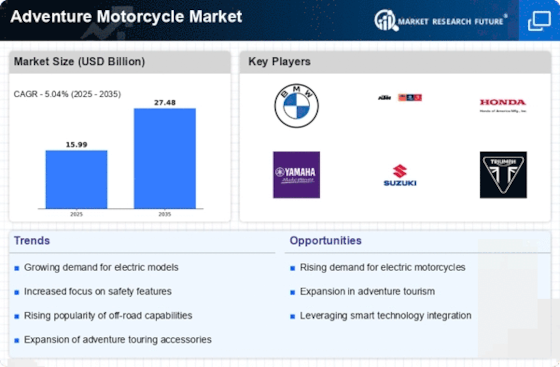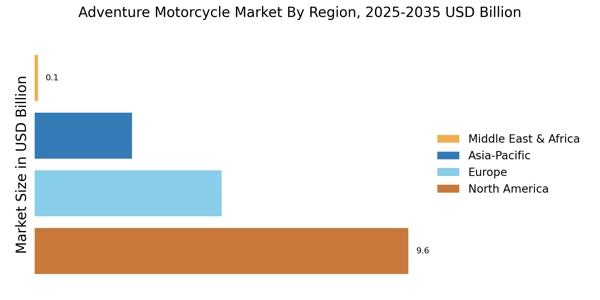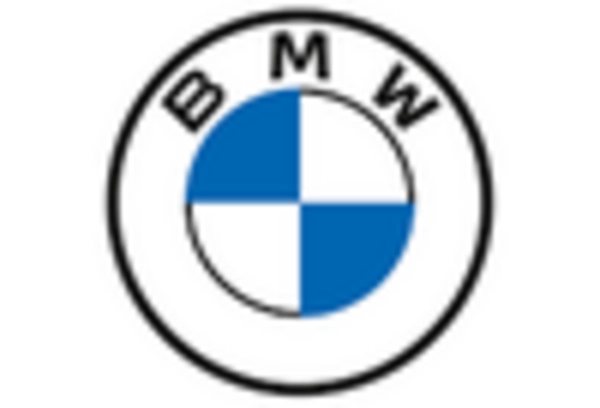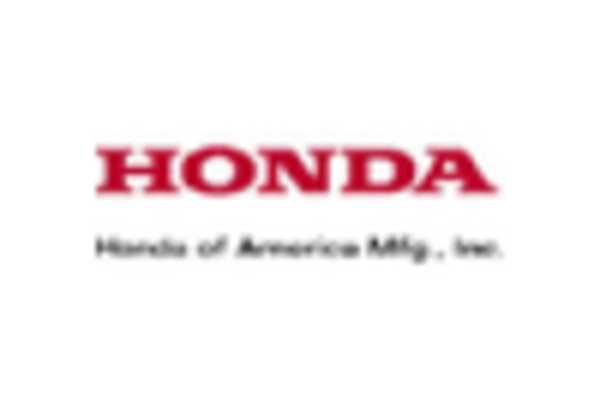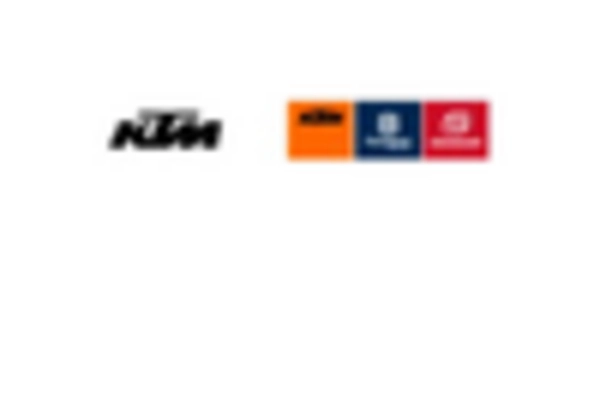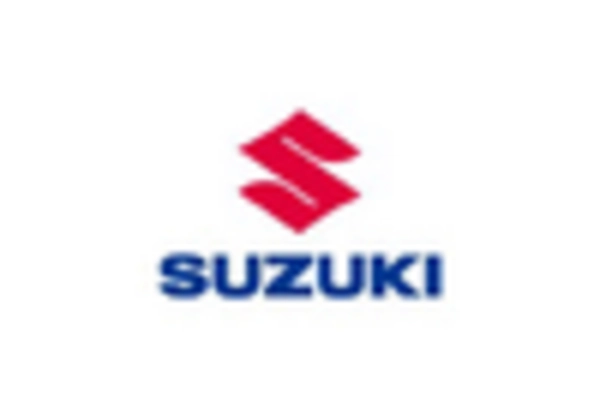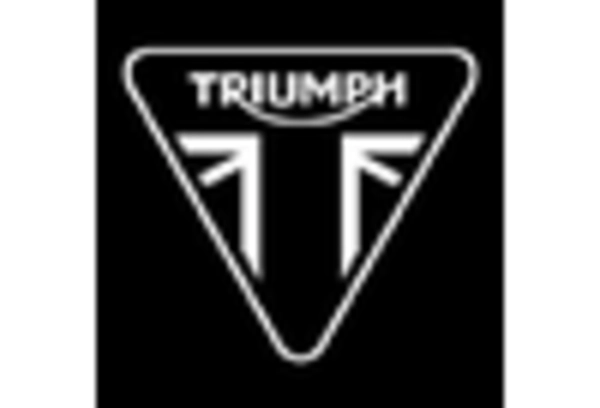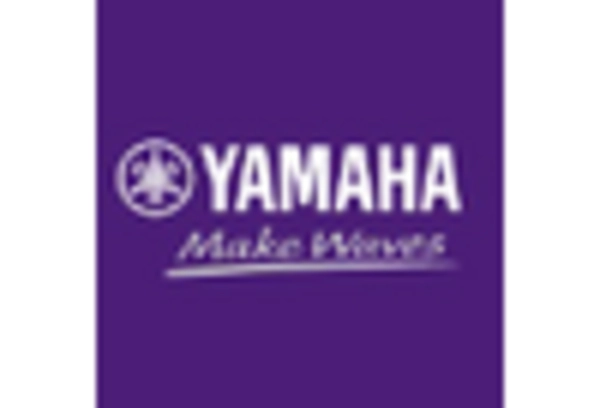The Adventure Motorcycle Market is currently characterized by a dynamic competitive landscape, driven by a confluence of innovation, consumer demand for versatility, and a growing interest in adventure tourism. Key players such as BMW Motorrad (Germany), KTM (Austria), and Honda (Japan) are at the forefront, each adopting distinct strategies to enhance their market positioning. BMW Motorrad (Germany) emphasizes premium offerings and technological advancements, while KTM (Austria) focuses on performance and off-road capabilities. Honda (Japan), on the other hand, leverages its extensive distribution network and brand loyalty to capture a broader audience. Collectively, these strategies contribute to a competitive environment that is both fragmented and vibrant, with each company striving to carve out its niche.
In terms of business tactics, companies are increasingly localizing manufacturing to reduce costs and enhance supply chain efficiency. This approach appears to be particularly effective in regions with high demand for adventure motorcycles, such as North America and Europe. The market structure is moderately fragmented, with several players competing for market share, yet the influence of major brands remains substantial. The collective actions of these key players shape the market dynamics, as they engage in strategic partnerships and collaborations to bolster their competitive edge.
In August 2025, KTM (Austria) announced a partnership with a leading technology firm to develop advanced rider-assistance systems. This strategic move is likely to enhance the safety and performance of their motorcycles, aligning with the growing consumer demand for innovative features. By integrating cutting-edge technology, KTM aims to differentiate itself in a crowded market, potentially attracting a new segment of tech-savvy riders.
In September 2025, Honda (Japan) unveiled a new line of eco-friendly adventure motorcycles, showcasing its commitment to sustainability. This initiative not only addresses the increasing consumer preference for environmentally conscious products but also positions Honda as a leader in the green motorcycle segment. The introduction of these models may serve to enhance brand loyalty and attract environmentally aware consumers, thereby expanding Honda's market share.
In October 2025, BMW Motorrad (Germany) launched a digital platform aimed at enhancing customer engagement through personalized experiences. This platform is expected to facilitate direct communication between the brand and its customers, fostering a community of adventure motorcycle enthusiasts. By prioritizing digital transformation, BMW Motorrad is likely to strengthen its brand presence and customer loyalty in an increasingly digital marketplace.
As of October 2025, the Adventure Motorcycle Market is witnessing a shift towards digitalization, sustainability, and the integration of artificial intelligence in product development. Strategic alliances are becoming increasingly pivotal, as companies collaborate to leverage shared resources and expertise. The competitive landscape is evolving, with a noticeable transition from price-based competition to a focus on innovation, technology, and supply chain reliability. This trend suggests that future differentiation will hinge on the ability to deliver unique, high-quality products that resonate with the evolving preferences of adventure motorcycle consumers.


